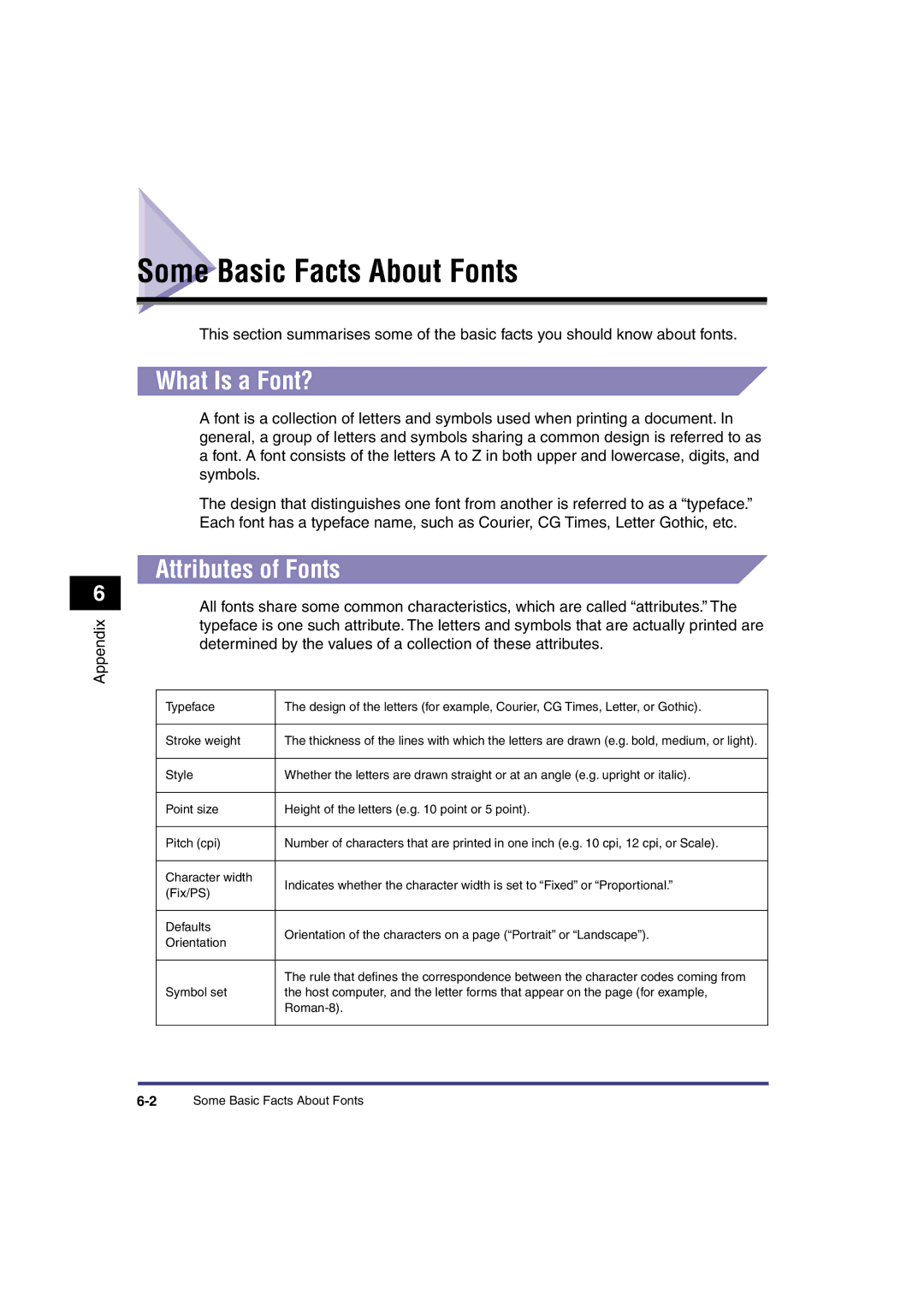
6
Appendix
Some Basic Facts About Fonts
This section summarises some of the basic facts you should know about fonts.
What Is a Font?
A font is a collection of letters and symbols used when printing a document. In general, a group of letters and symbols sharing a common design is referred to as a font. A font consists of the letters A to Z in both upper and lowercase, digits, and symbols.
The design that distinguishes one font from another is referred to as a “typeface.” Each font has a typeface name, such as Courier, CG Times, Letter Gothic, etc.
Attributes of Fonts
All fonts share some common characteristics, which are called “attributes.” The typeface is one such attribute. The letters and symbols that are actually printed are determined by the values of a collection of these attributes.
Typeface | The design of the letters (for example, Courier, CG Times, Letter, or Gothic). | |
|
| |
Stroke weight | The thickness of the lines with which the letters are drawn (e.g. bold, medium, or light). | |
|
| |
Style | Whether the letters are drawn straight or at an angle (e.g. upright or italic). | |
|
| |
Point size | Height of the letters (e.g. 10 point or 5 point). | |
|
| |
Pitch (cpi) | Number of characters that are printed in one inch (e.g. 10 cpi, 12 cpi, or Scale). | |
|
| |
Character width | Indicates whether the character width is set to “Fixed” or “Proportional.” | |
(Fix/PS) | ||
| ||
|
| |
Defaults | Orientation of the characters on a page (“Portrait” or “Landscape”). | |
Orientation | ||
| ||
|
| |
| The rule that defines the correspondence between the character codes coming from | |
Symbol set | the host computer, and the letter forms that appear on the page (for example, | |
| ||
|
|
